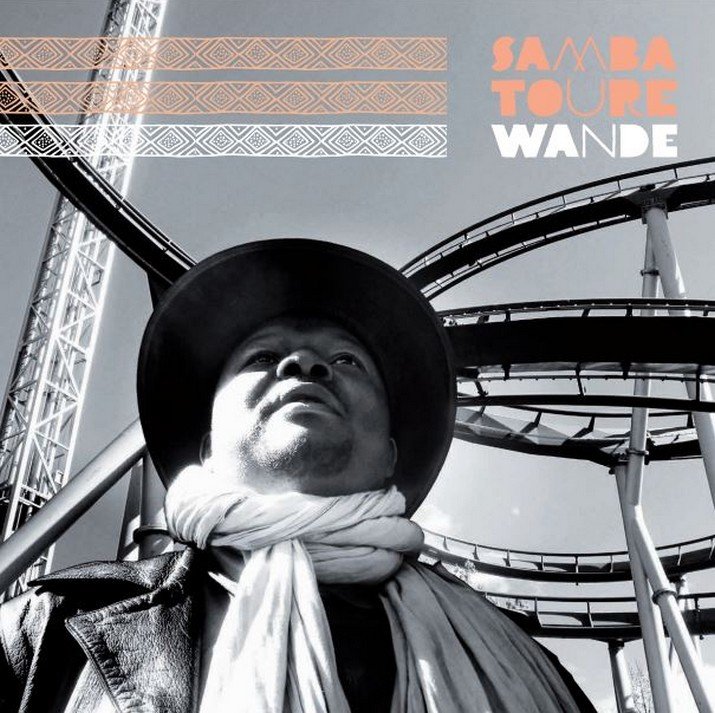Samba Toure, Malian blues legend, guided by one of Africa’s finest composers, Ali Farke Toure, released his third album, Wande, on the Glitterbeat label (May 2018). The opening track, “Yo Pouhala” (“blah blah blah”), sung in Fulani, is an unusually sedated introduction to the album. In sympathy with its subject matter, Samba’s vocals are atypically pained and with a deep sadness arising from his seductive tones. Samba approaches the album with caution. An opportunity, perhaps, to convey the mutuality of shared social and political injustice between cultures and the Malian culture itself, without complicating its arrangements with distracting and unnecessary substance. Or musically, at least, it is a subtle reminder of the unifying bond that exists as a result of both black American and the Fulani folk’s woeful endurance.
The Delta blues influence is immediately apparent within its opening tracks, as the bend of the guitar strings passes those customary languid blues tones from minor to major, a technique rarely heard within the African blues genre. “Yo Pouhala” undoubtedly gives flavour, although is perhaps not quite so flavoursome.
The art of simplicity associated with Ali Farke Toure’s familiar production styles, responsive chant-like vocals and repetitive mantras upon his notorious yet strangely enchanting shrill (an instrument unique in itself) weaves its way into Samba’s influence upon this album; “Hawah” and “Irganda” are just two tracks that spring to mind. It is no surprise to learn of Samba and Ali’s previous collaborations.
The following tracks are groove driven, picking up pace, yet still retaining those quintessential, behind-the-beat, world beat rhythms. Wande is an exceptional example of these conventions rich within world music, particularly desert blues. While Samba throws in a few complimentary blues licks throughout the duration of the album, the amalgamation of traditional and contemporary instrumentation delicately accommodates an incessant thumping bass line, of which the calabash, (a time-honoured percussive instrument, native to the African dance movement) handles with dignity and grace. It is as organic as the soil!
In light of Samba’s painful subject matters, however, the title track “Wande” (“loved one”), sung in a melodious Songhoy style, is a peaceful reminder of what is ‘home’. It is hard not to move or to be moved deeply by this album.


